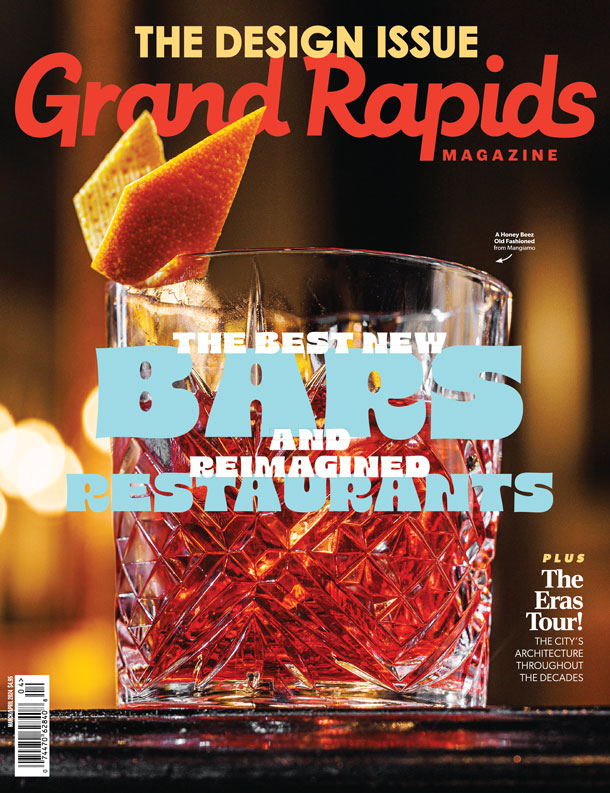Founded in 2006, Hickory Creek Winery just celebrated its first year under the ownership and viticulture leadership of Adam McBride. It had started under an ownership team of three partners, transitioned to different owners in 2012 and finally was acquired by McBride in 2017.
McBride’s journey into the world of wine started during his time living in the Mosel Valley in Germany; his place overlooked a Riesling vineyard, and he spent two years immersed in the regional wine culture. After eight years in the Air Force and a career in the Michigan manufacturing industry, he pursued formal wine education through Napa Valley Wine Academy and purchased the winery. He’s currently a second-year student in the wine and viticulture technology program at Lake Michigan College Benton Harbor.
“I think Hickory Creek is set apart by the level of personal attention we are able to put into the wines and tasting room experience,” said McBride. “We are the smallest winery on the Lake Michigan Shore Wine Trail and much smaller than what you would see on Old Mission or Leelanau. Even if you don’t count the area’s four or five large producers that make wine on an industrial scale, the typical winery on the trail is about three times the size of Hickory Creek in terms of wine production.”

Most of the wines he makes are small-batch vintages (meaning about 100 cases of wine) and some are even smaller, with only 15-20 cases of wine. But he said the smaller batch option gives him more opportunity to try different and interesting things.
“When I was first getting into wine, the idea of winemaking seemed to be very sophisticated and perhaps romanticized in my mind,” said McBride. “I had visions of drawing samples of wine from barrels in a musty, candlelit cellar. In actuality, winemaking is dirty, sticky, hands-on and physically demanding.”
He’s involved with every aspect of winemaking from crushing, destemming, punch downs, racking, pressing and fermenting to lab work, blending, naming, label creation, bottling, marketing and serving wine to his tasting room guests. All the fruit is sourced from farms in the Lake Michigan Shore American Viticultural Area (an area that stretches from the Indiana/Michigan border to Saugatuck along the Lake Michigan border, and as far east as Kalamazoo).

McBride describes his wines as “European-style wines.”
“To me, European-style wines mean two things: first, we use Vitis vinifera grape varietals as much as possible, such as Riesling, Merlot, Grüner Veltliner, Pinot Gris and Pinot Noir. Second, my winemaking leans heavily to the dry end of the spectrum, as it does across most, if not all, “Old-World” wine regions.”
For now, Hickory Creek Winery wines can be enjoyed in the estate tasting room or ordered online. McBride hinted at expanding into Grand Rapids wine shops and restaurants, but nothing is confirmed as of yet.
For the 2018 vintage, they’ll feature a series of whites including Riesling, Pinot Blanc, Sauvignon Blanc, Vidal blanc, Seyval blanc and an unoaked chardonnay. McBride is also introducing a limited release, natural yeast, skin-fermented Traminette that will make an “orange wine” style rosé. For reds, they’ll offer up a Merlot, Pinot Noir and Cab Franc, as well as a 2017 Chambourcin and 2017 Merlot.
McBrides’ wines are made without enzymes or color additives. He uses medium-charred French oak to add notes of vanilla and baking spice and American oak barrels for subtle notes of dill and cedar. But overall, he said he lets the grapes and yeast speak for themselves.

“We had a 2016 Cabernet Franc on our tasting card that was so light in color, it looked like a deep rosé. It gave us the opportunity to talk about the 10 inches of rain that fell two weeks before harvest. Our guests love hearing about the frost, rain, heat and sunlight that manifest in their glass. That’s the beauty of our wine region.”
Some of McBride’s favorite moments in his tasting room are when people tell him that they avoid Riesling because they believe it is always a sweet wine. He purposely brands his as a “dry Riesling” to help dispel this myth. His Rieslings are reminiscent of his days back in Mosel sipping trocken-style Rieslings.
“There is absolutely no reason our state can’t emerge as a great, cool-climate wine region like the Finger Lakes, Alsace, Willamette Valley and others. In fact, with the warming influence of Lake Michigan in the winter, our farmers along the lakeshore can produce varietals that some of these regions struggle to grow. We are seeing some amazing Syrahs, Cab Sauvs, Merlots, and even Carménère and Malbec out of our area.
*Photos courtesy of Hickory Creek Winery. Main photo: Adam and his dad proudly crushing grapes during his first harvest in 2017.








Facebook Comments